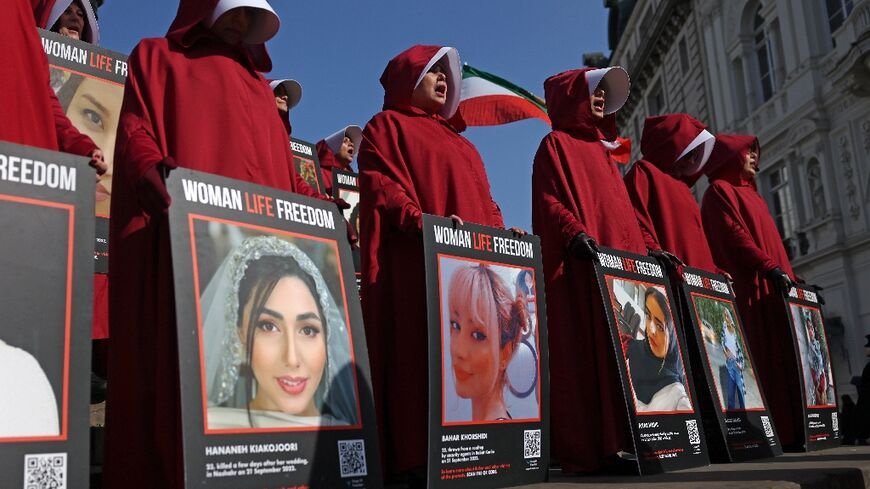In response to escalating regional tensions and amid ongoing repression, the Iranian government has intensified its crackdown on women’s rights, with increased arrests, stricter enforcement of dress codes, and an alarming rate of executions. Activists report that these measures have accelerated as Iran faces heightened conflict with its regional adversary, Israel.
Since the nationwide protests in September 2022, triggered by the death of 22-year-old Mahsa Amini, who died in police custody after allegedly violating Iran’s mandatory hijab rules, the country has seen a severe clampdown on dissent. The situation has worsened in recent weeks, with reports of Israel launching strikes on Iranian territory, leading to tighter restrictions and an apparent reactivation of the “morality police.”
Eyewitness accounts and social media posts reveal a resurgence of the feared white vans used by the morality police to detain women deemed to be in violation of the hijab law. Tehran’s police chief, Abbas Ali Mohammadian, announced on April 13 that the authorities would be enforcing the obligatory hijab more rigorously, with local media reporting the operation was codenamed “Nour” (“light” in Persian). Videos circulating on social media under the hashtag “jang aliyeh zanan” (“war against women”) show women being apprehended and forcefully taken into police vehicles by male and female officers.
Narges Mohammadi, a 2023 Nobel Peace Prize laureate and jailed rights activist, described the crackdown as a “war against women and youth.” Writing from Tehran’s Evin Prison, she emphasized that the Iranian government has turned the streets into a battlefield, with an oppressive response to any sign of dissent. In a widely shared video, a woman near the Tajrish metro station in northern Tehran collapsed after being detained by police, while bystanders noted that her phone had been confiscated. Other videos suggest that electric shocks are used against women in police custody.
The director of the New York-based Center for Human Rights in Iran, Hadi Ghaemi, warned that the Islamic Republic is exploiting regional tensions to further suppress internal dissent. He called for a firm international response to prevent the Iranian regime from intensifying its violent repression against women and broader human rights abuses. Ghaemi stated that, without concerted global pressure, the Iranian government might use the ongoing regional conflict to justify harsher crackdowns.
The heightened repression has coincided with an increase in executions, with at least 110 people executed in Iran this year alone, according to the Norway-based Iran Human Rights (IHR) group. Among those executed were a married couple, Esmail Hassaniani, 29, and Marjan Hajizadeh, 19, who were sentenced to death for drug-related charges and hanged in Zanjan central prison on April 11. IHR director Mahmood Amiry-Moghaddam voiced concerns that the regime might use the current climate to reassert control lost during the 2022 protests, tightening its grip on Iranian society as international attention shifts to regional conflicts.
